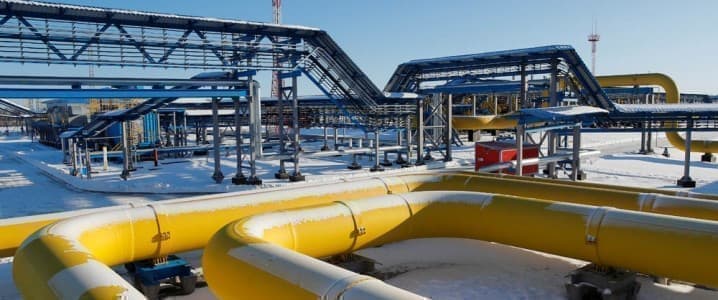OPEC+ is not discussing or planning changes to its production cut agreement, which should see the oil producers ease the cuts in August, Russia’s Energy Minister Alexander Novak said at an online conference on Thursday.
OPEC+, led by Russia and OPEC’s top producer Saudi Arabia, agreed in June to extend the record production cuts of 9.7 million bpd by one month through the end of July.
According to the original agreement reached in April, OPEC+ was to cut 9.7 million bpd in combined production for two months—May and June—and then ease these to 7.7 million bpd, to stay in effect until the end of the year. Then, from January 2021, the production cuts would be further eased to 5.8 million bpd, to remain in effect until end-April 2022.
The group is not discussing any changes to the parameters of the deal for after July, Novak said, noting that the producers would thus start to ease the record cuts of 9.7 million bpd to 7.7 million bpd.
Commenting on the global oil supply during the demand crash in April, the Russian minister said that the oil glut likely reached 1 billion barrels when demand was worst hit in the pandemic and the measures to contain it.
But OPEC+ has started to influence the supply-demand balance, and the oversupply continued to shrink in June, he added.
“I hope that figures in July will show that we have reached market balance and even a deficit in supply,” Novak said.
While Russia expects that the OPEC+ production cuts will start easing in August, OPEC’s leader Saudi Arabia is still busy trying to have laggards in the deal, such as Iraq, Nigeria, and Angola, fall in line with their quotas and compensate for previous non-compliance in May and June.
Saudi Energy Minister, Prince Abdulaziz bin Salman, has threatened a new oil price war unless Angola and Nigeria toe the line, The Wall Street Journal reported on Wednesday, quoting delegates.
By Tsvetana Paraskova for Oilprice.com
More Top Reads From Oilprice.com:
- Covid-19 Is Crushing This African Oil Exporter
- Why Power Companies Can’t Ditch Coal Just Yet
- 3 Oil Stocks With Good Upside And 3 To Avoid



















Russia will certainly prefer this approach as it believes that oil prices ranging from $45-$50 will prevent a quick return of shale oil to the market. Saudi Arabia, on the other hand, would like oil prices to rise higher than $80 so as to balance its budget.
The Saudi threat to start a new oil price war unless Angola and Nigeria toe the line on the cuts is not going to materialize first because the last time Saudi Arabia waged a price war against Russia it ended losing $12 bn in revenue in one month and was blamed by the Trump administration for exacerbating the oil price collapse and also the collapse of the US shale oil production. The second reason is that an oil price in the low $40s even with laggards like Angola and Nigeria is preferable to a price war causing the price to collapse to lower $30s.
Dr Mamdouh G Salameh
International Oil Economist
Visiting Professor of Energy Economics at ESCP Europe Business School, London